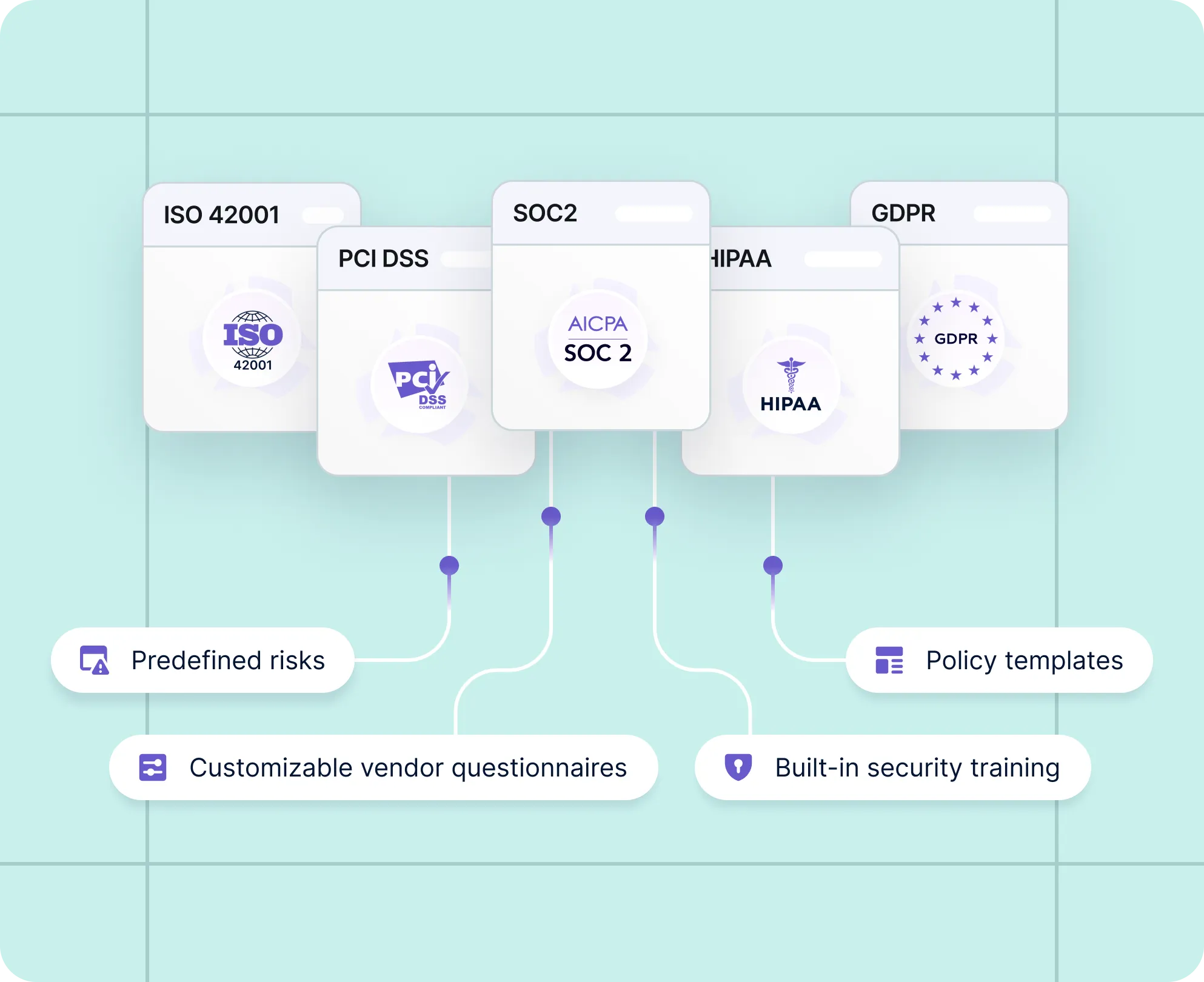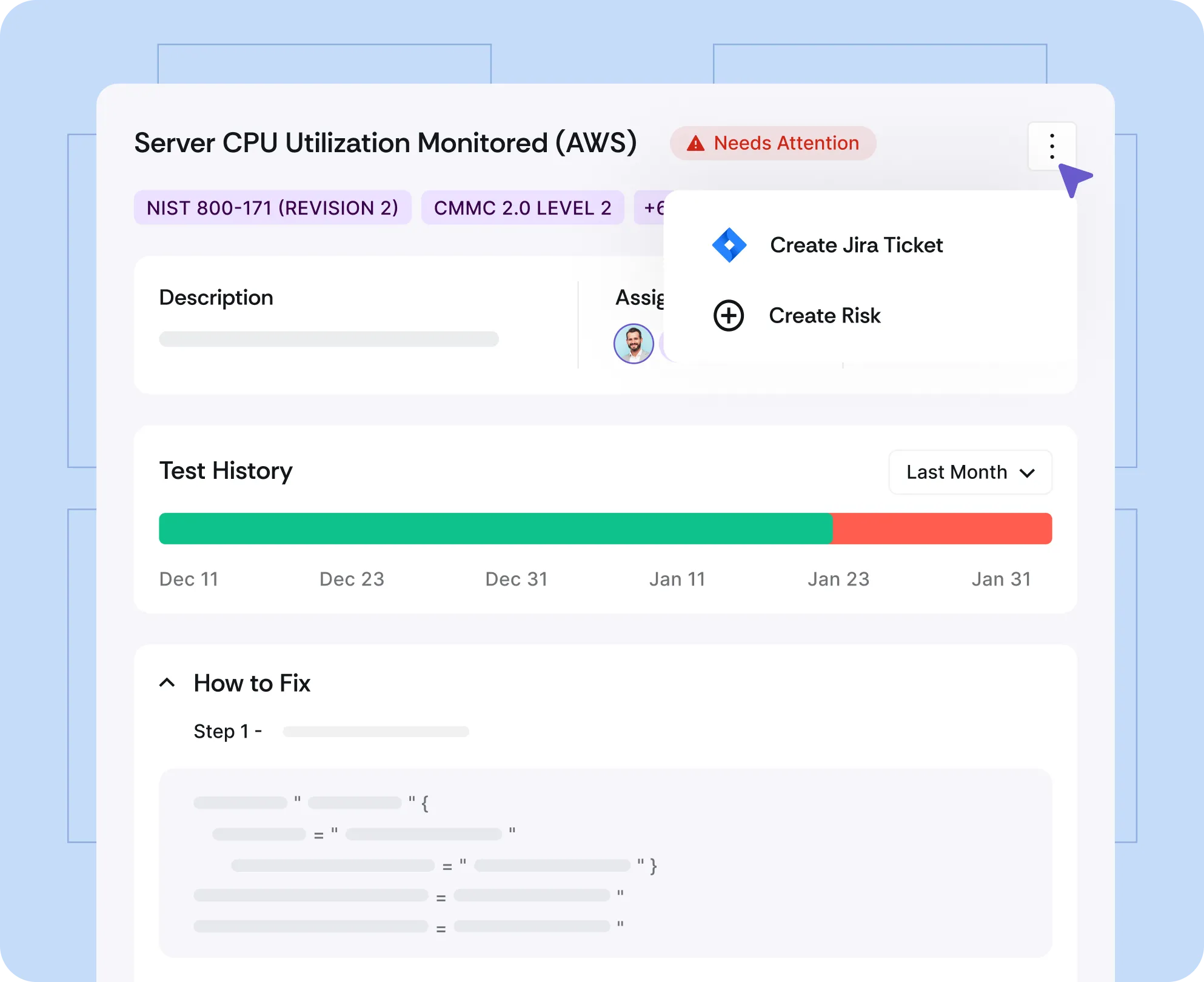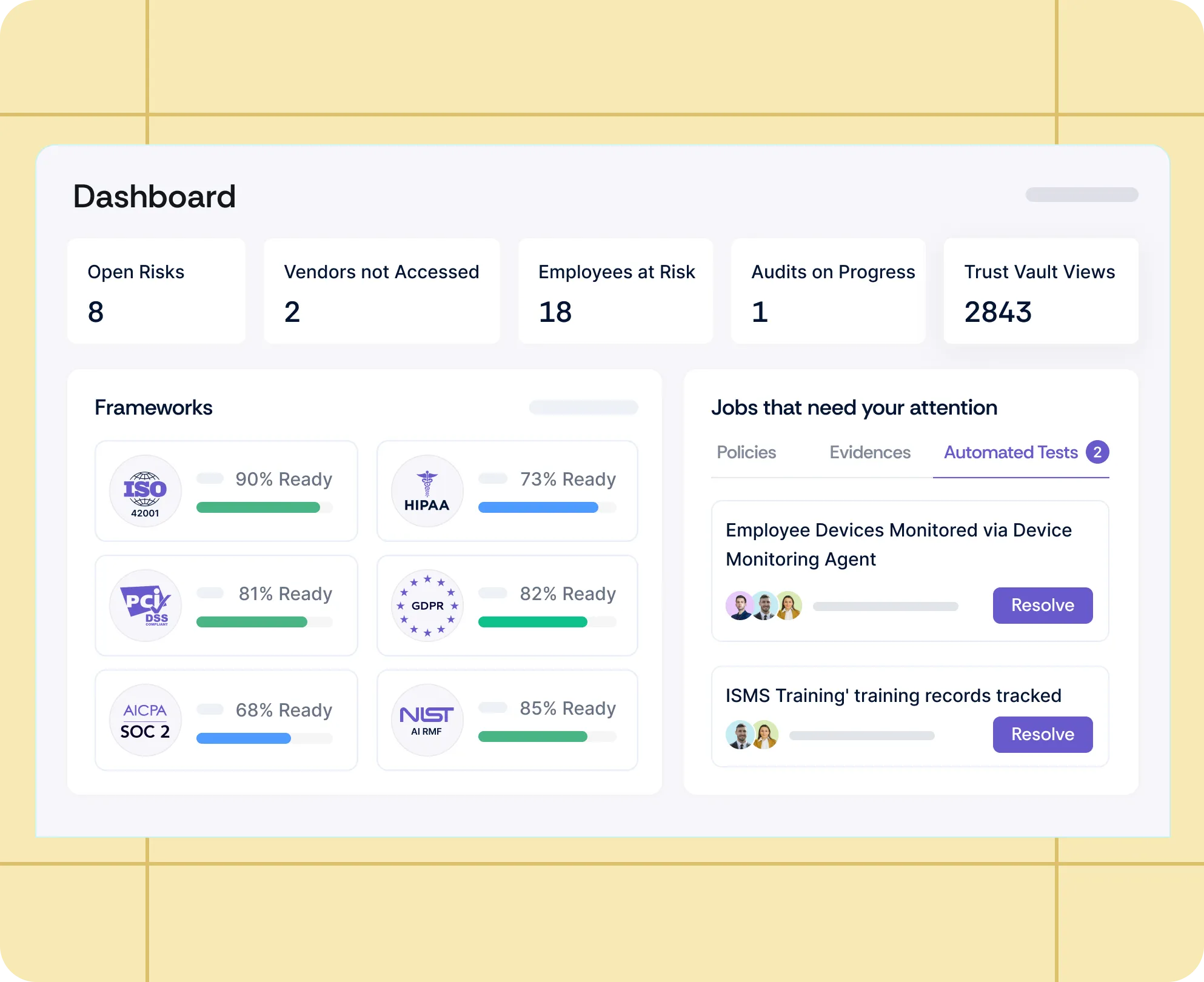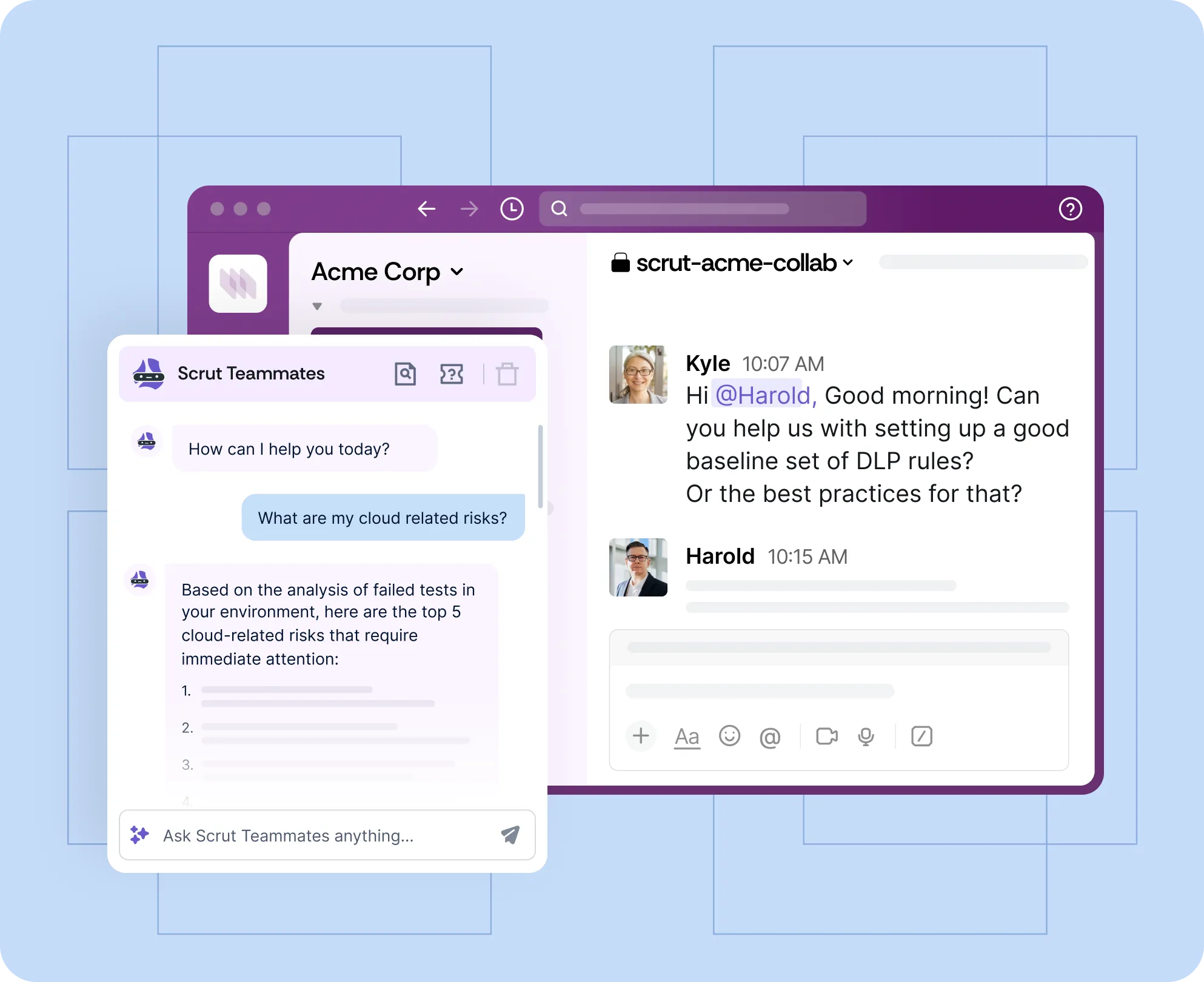
Scrut made audits simple—with clear explanations, organized controls, and seamless integration into our workflows. Even support went beyond hours.
Uncomplicate CCPA compliance with our built-in CCPA privacy controls and automated control monitoring





























Scrut made audits simple—with clear explanations, organized controls, and seamless integration into our workflows. Even support went beyond hours.



Scrut helped our company navigate the complexities of SOC 2, ISO 27001, HIPAA, GDPR, CCPA, and PCI compliance with ease.
.webp)

Plug Scrut into your tech stack with easy integrations

Lean back as Scrut's automated tests collect majority of the evidences

Quickly address gaps and deploy controls with our content libraries

Enjoy continuous control monitoring and 24/7 audit readiness
The California Consumer Privacy Act (CCPA) is the USA’s first comprehensive privacy law. Effective January 2020, CCPA gives California consumers a variety of privacy rights. Businesses governed by the CCPA will have a number of obligations to their customers, including disclosures, GDPR-like consumer rights, an ‘opt-out’ for certain data transfers, and an ‘opt-in’ requirement for minors.
In contrast to GDPR, the CCPA only applies to residents of the state of California in the United States. The EU’s citizens are covered by the GDPR (EU). Furthermore, while the basic premise of both laws—namely, that people have certain rights over their personal data—is the same, the specific rights that each law provides are somewhat different.
Many of the CCPA’s rights granted to Californians are similar to the GDPR’s rights, including disclosure and consumer requests similar to DSR requests, such as access, deletion, and portability. Organizations that implement CCPA privacy compliance measures typically have stronger security and risk management controls in place to protect themselves from privacy risks
With the help of the CCPA, organizations must be more accountable to consumers and more transparent regarding the data they collect and how they put it to use. Organizations benefit more from CCPA compliance in terms of competitive advantage. It allows them to reach a broader audience and draw clients who are more likely to favor businesses that respect their privacy. Organizations that establish proper measures for CCPA privacy compliance also showcase better security and risk management in their daily operations.
For-profit organizations must comply with the CCPA if they process the personal data of California residents. The organizations for whom CCPA is mandatory – irrespective of location – can be recognized in one of the following ways:
(A) If they have annual gross revenues of more than $25,000,000
(B) If they buy, receive, sell, or share for commercial purposes the personal data of 50,000 or more consumers, households, or devices each year, or
(C) they get 50% or more of their annual revenues from California residents.
The CCPA privacy law gives residents of California the right to know which data is being collected and how it is being used. The right to have their PI removed and the right to be treated equally when exercising their CCPA privacy rights are also provided to the residents.
Organizations that are governed by the CCPA are required to respect these rights in their everyday operations. Additionally, they must describe their privacy policies in their online privacy statement, which among other things, must describe how the organization gathers and uses individuals’ personal information.
The private right of action under the CCPA is limited to data breaches. Damages under a private right of action can range from $100 to $750 per incident and per consumer. The California Attorney General may also enforce the entire CCPA, with a civil penalty of up to $2,500 per violation or $7,500 per intentional violation.
No. The company need not take a person’s consent before collecting or using their personal information. The concept of CCPA comes into the picture if the company intends to sell information.
PI can be any information about an identified or identifiable individual. There is no distinction between a person’s personal, public, or professional roles. The defined term ‘personal information’ roughly corresponds to the GDPR term ‘personal data.’ However, CCPA does include family and household data.a
PCI DSS is an annual certificatioThe CCPA was launched in 2020, and it stipulated organizations uphold a long list of “consumer” legal rights to control the use of California residents’ personal data. Non-compliance with the CCPA can result in regulatory and civil enforcement actions, as well as significant monetary penalties for organizations. The challenges underlying CCPA compliance include limited implementation time, unstructured data management systems, and compliance with multiple state data privacy laws.n. But you are required to maintain the security of your environment throughout the year to achieve ongoing certification.